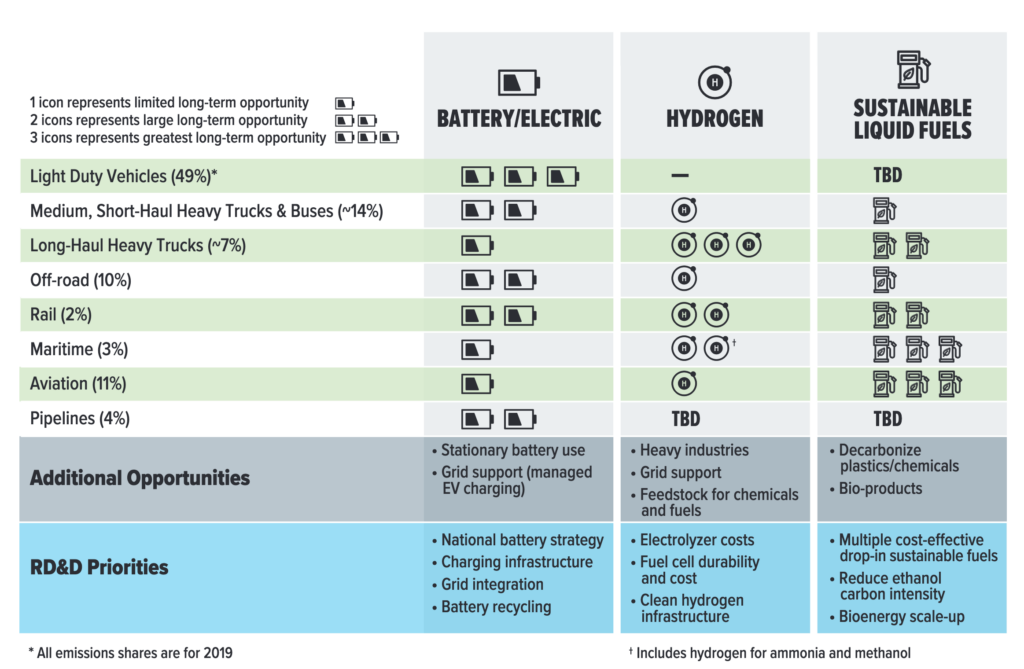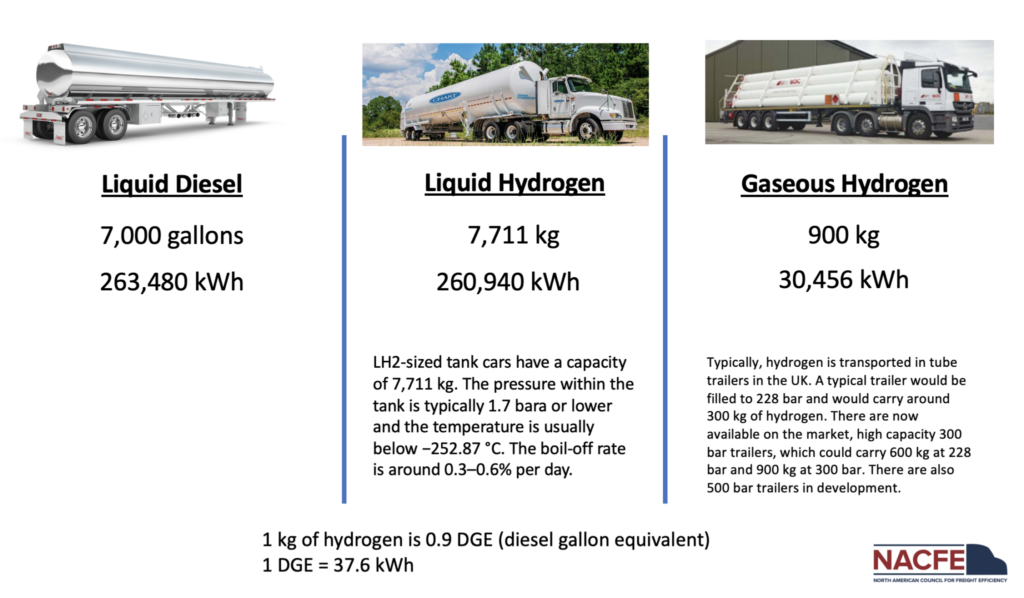NACFE takes fresh look at hydrogen fuel cells
The North American Council for Freight Efficiency (NACFE) has revisited the potential for hydrogen fuel-cell-electric trucks to meet zero-emissions targets, three years after publishing its initial findings and in light of new learnings.
“As we move to the zero emissions freight future, in the long run, there are only two choices of power – battery-electric and hydrogen fuel cell,” said Rick Mihelic, report author and director of emerging technologies, NACFE.

Battery-electric vehicles (BEVs) are quickly finding a home in local transport, but certain applications involving longer routes and heavier payloads may be better served by hydrogen-fueled trucks. Team operations will also need a solution involving faster fueling times than BEVs.
When NACFE took its first in-depth look at hydrogen in 2020, it got many predictions right, one of which was that a hydrogen economy cannot be built for longhaul trucking alone.
“There’s not enough demand,” Mihelic said during a conference call to discuss the findings of NACFE’s Hydrogen Trucks: Long Haul’s Future? report.
But the initial report failed to take into consideration the advent of hydrogen-burning diesel-based engines, which have since emerged as a potential solution. A hydrogen internal combustion engine presents a near-zero emissions option and also greater simplicity and lower cost as existing engine designs could be utilized.
However, the report also points out that a hydrogen internal combustion engine will likely not compete with fuel cells when it comes to miles per kilogram of hydrogen consumed. Then, there’s also the issue of how hydrogen will be transported and carried onboard the truck. Both liquid and gaseous options exist, but NACFE feels there should be standardization.

A liquid hydrogen tanker can carry nearly the same amount of energy as a liquid diesel tanker, noted Mike Roeth, NACFE executive director. In this instance hydrogen can be transported to fueling sites in much the same way diesel is today. Gaseous tanker trailers, such as those used in Europe, carry so much less energy that it would take more than eight to match the density of one liquid tanker.
No hydrogen option will fully displace BEVs, noted Roeth, since we already have experience producing and delivering electricity to sites where it’s needed. The question then will be, what will the mix be of BEVs and FCEV (hydrogen-fuel-cell-electric) trucks?
Another new consideration is how the hydrogen will be produced. In earlier reports on hydrogen, NACFE wrote about a color spectrum of hydrogen based on the cleanliness of its production, with green hydrogen being the cleanest option. Since then, discussion has shifted to “carbon intensity” of production, noted Mihelic, rather than color.
“We don’t hear how it’s produced as long as the carbon intensity is properly managed,” he said.
The report makes four key conclusions: that both BEV and FCEV options will be required; that only BEV and FCEV will meet the zero-emissions needs of a wide range of duty cycles; that alternative fuels like renewable diesel or renewable natural gas will still be needed to support the transition to zero-emissions freight; and that industry must decide on whether hydrogen should be transport and consumed in gaseous or liquid form.
While it will take time to determine how, when and where hydrogen trucks will fit into the future of zero emissions freight, another surprise since NACFE’s earlier reports on the subject is how fast the technology is advancing.
“Hydrogen technology is coming faster than we expected,” Schneider executive vice-president Rob Reich wrote in the report. “We will be testing a truck this year.”
Have your say
This is a moderated forum. Comments will no longer be published unless they are accompanied by a first and last name and a verifiable email address. (Today's Trucking will not publish or share the email address.) Profane language and content deemed to be libelous, racist, or threatening in nature will not be published under any circumstances.
Hydrogen has been going nowhere for quite a while and battery electric is currently the only real option.